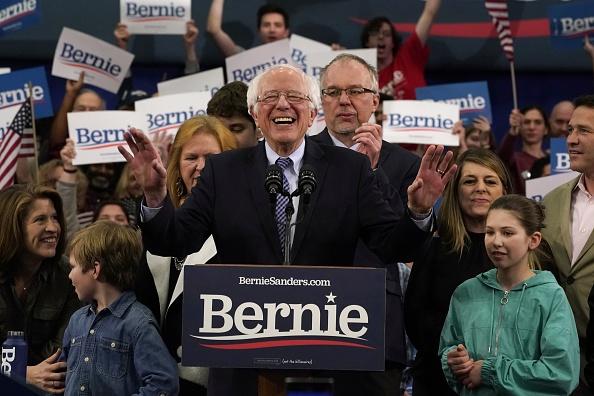Electability is the key weakness for Sanders and Buttigieg – the next two races could put that argument to bed
South Carolina in particular will prove difficult ground for the pair, but if they want to win the White House they will both need to do well, writes Chris Stevenson


Finally, clarity: Bernie Sanders and Pete Buttigieg have momentum, Joe Biden and Elizabeth Warren don’t.
Now comes the big test. The next two contests, the caucuses in Nevada and the primary in South Carolina, have a more diverse electorate than either Iowa or New Hampshire. They will arguably be a more accurate litmus test of electability.

Biden has consistently pushed the message that he is most electable, using his time in Obama’s White House as his totem – but that has been hit hard by his relatively poor performance in the first two states. The same goes for Elizabeth Warren, whose failure to finish in the top three in New Hampshire is a big blow.
Biden has set up South Carolina as the firewall for his campaign, leaving New Hampshire before counting was even remotely finished to go and campaign there. He needs a big win, or his campaign will be finished.The state has a significant black population, among which he is popular. That combined with the Latino vote in Nevada, means he can make the argument that these later two states better represent America than the first two.
Sanders and Buttigieg are aware of the importance of the next two races. Sanders lost both Nevada and South Carolina to Hillary Clinton in 2016. Nevada was close, but Clinton won more than 73 per cent of the vote in South Carolina. Sanders and particularly Buttigieg have struggled for support from black voters, which has undermined their arguments for electability.
That said, a number of the candidates have electability issues, with the crowded field leading voters to second guess who the rest of the country will vote for. Sanders and Buttigieg, however, have targets on their backs: Sanders due to his association with the word “socialist”, still a dirty word for some in US politics, and for styling himself as the "revolution" candidate; Buttigieg for his limited political experience. Unfortunately, there is also the possibility that Buttigieg being gay would hamper his chances in November’s vote.
Success for both candidates in South Carolina – and to a lesser extent Nevada – could settle the electability argument for Sanders and Buttigieg once and for all. But it will be difficult. Biden has relied on his strong support among black voters and has had a consistent lead in the state, while wildcards like Michael Bloomberg have been spending heavily on ads in the run-up to “Super Tuesday” on 3 March, when more than a dozen states will hold primaries.
Buttigieg has the hardest work to do if he really wants to make this a two-horse race. He received only 4 per cent of support among black Democrats in a Quinnipiac University poll published on Monday, trailing Biden, who received 27 per cent of the vote, former New York mayor Bloomberg with 22 per cent, Sanders with 19 percent and Warren with 8 per cent. The next day, the former South Bend mayor told CNN he “absolutely” has work to do. That work will likely focus on the fact voters in the state want to beat Trump, and he is the person to do it – a key motive for all voters.

Sanders has had more encouraging news on that front. The latest national poll from Monmouth University has the Vermont senator backed by 28 per cent of black, non-white Hispanic and Asian voters, eight ahead of Biden in second place. In another poll by Morning Consult, Sanders has gained 10 points among black voters since before Iowa, with 27 per cent saying they now back him. Biden’s support in the same poll dropped to 35 per cent.
If Biden make it through South Carolina and Nevada, he will channel all his efforts towards Super Tuesday. Warren, who is not expected to do brilliantly in either state, will be on thin ice without a good result. Barring another surge from Amy Klobuchar or billionaires Bloomberg and Tom Steyer, the next two states could significantly winnow the field.
Meanwhile, the next two primaries present an opportunity for Sanders and Buttigieg to put their stamp on the race – which both are dead set on doing.
Join our commenting forum
Join thought-provoking conversations, follow other Independent readers and see their replies
Comments